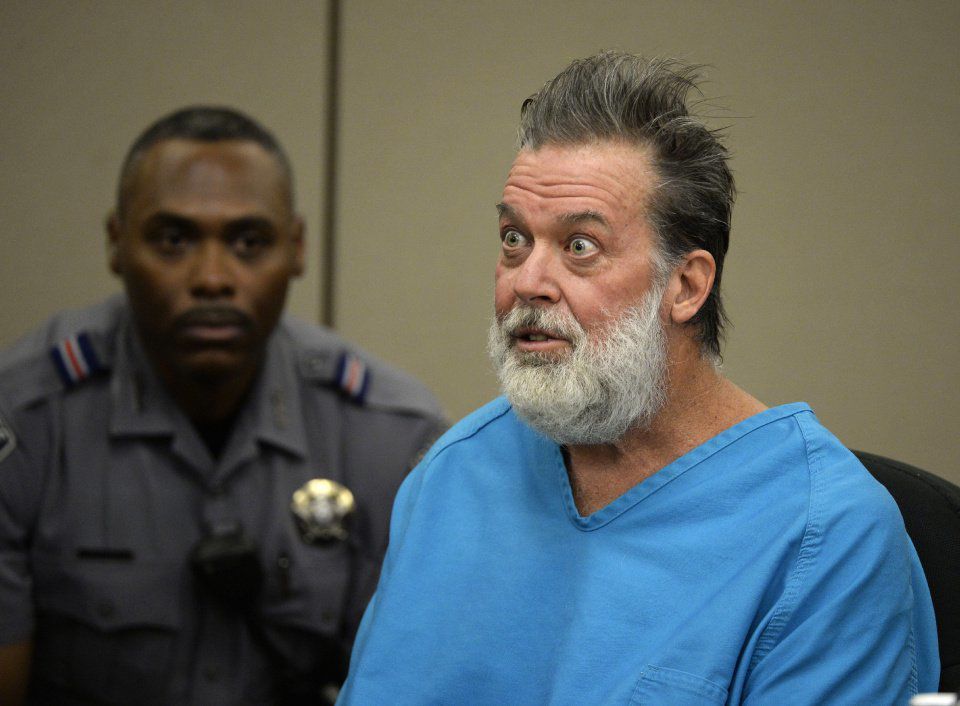Denver Health ordered to pay $660,000 for violating constitutional rights

Alexander Edwards/Denver Gazette

The entrance to the Denver Health detox facility known as Denver CARES on April 24, 2024. The facility must pay $660,000 after a jury found the facility violated the Fourth Amendment rights of two residents by detaining them in the against their will. (Alex Edwards/The Denver Gazette)
Alexander Edwards/Denver Gazette
Denver Health has been ordered to pay $660,000 to two residents after a jury ruled Friday that a detox facility violated their constitutional rights in 2017.
Benjamin Stecker and Leigh Ann Midgett were both taken to a Community Addiction Rehabilitation and Evaluation Services (CARES) facility by Denver police and held for several hours against their will as CARES staff refused to release either of them until their blood alcohol levels dropped to 0%.
Attorneys for the detox facility argued in court that the Fourth Amendment does not apply to CARES operations. A Denver judge disagreed and allowed the case to move forward despite a claim by employees at the facility that the plaintiffs consented to admission.
Both were described in court testimony as calm and cooperative, and neither were recommended for emergency commitment related to substance abuse.
Denver Health, created by state statue, operates the CARES facility and contracts with the City and County of Denver for its services. Though separate from Denver, Denver Health is classified as a government operation.
The Fourth Amendment of the Constitution, part of the Bill of Rights, is in place to prevent the government — whether city, state or federal — from violating citizens’ rights.
It reads:
“The right of the people to be secure in their persons, houses, papers, and effects, against unreasonable searches and seizures, shall not be violated, and no Warrants shall issue, but upon probable cause, supported by oath or affirmation, and particularly describing the place to be searched, and the persons or things to be seized.”
The verdict came after 4.5 hours of deliberation, with the jury awarding $380,000 to Stecker and $280,000 to Midgett.
Robyn Levin, an attorney representing Stecker and Midgett, said one of the most critical parts of the ruling is that it reaffirms that the duration of a violation doesn’t matter.
“It’s not OK for the government to ignore the Constitution as long as it does it for a couple of hours,” she said. “And I think that’s incredibly important for a lot of people who would otherwise have their experiences minimized.”
Midgett came to Denver for a concert at Red Rocks in September 2017. At the concert, she was detained by Denver police and taken to Denver CARES, where she spent the next 11 hours being held against her will, according to court documents. Documents and attorneys also said she was subject to a strip search during her detainment.
These documents show that Midgett was admitted to the facility with a blood alcohol content (BAC) of 0.144%. Even as she went through the process, both Midgett and employees questioned why she was there. She was finally released the next morning after recording a BAC of 0%, the condition CARES imposes for a patient’s release.
According to Colorado state law, a person is not considered impaired until their BAC hits 0.05%. Between 0.05%, but under 0.08%, a driver may face a driving while ability impaired charge, which is typically a misdemeanor. Anything above 0.08% will result in a DUI.
Midgett, however, was not intending to drive anywhere and even reserved seats in a transport van, according court documents.
“She approached an employee and asked if she could be taken to jail so that she could be bailed out. She was told that she had not committed a crime, so she could not be taken to jail,” a summary document reads. “Ms. Midgett was held for 11 hours.”
Midgett’s husband came to CARES, but was told by staff that if he had anything to drink he’d be detained as well.
Denver Health provided a statement to The Denver Gazette in which it said its attorneys are considering an appeal.
“Denver Health respects the jury’s verdict which is based on events that occurred in 2017 and 2018,” according to the statement. “CARES continues to provide needed and important services for those in our community who are impaired or have a substance use disorder.”
Midgett’s story is not an outlier, Levin said.
Google reviews show the facility has a rating of 2.4 out of 5, with many reviewers claiming false imprisonment, constitutional violations and coercion to sign medical consents or other documents.
The mission and service aspect of CARES is not lost on Levin, nor Stecker. Both agree it is a good one in principal, but that does not give CARES staff a pass to violate peoples’ rights, Levin said.
In 2017, when he was 27, police took Stecker to CARES in handcuffs after responding to a domestic disturbance. A neighbor reportedly heard a man saying “please stop hitting me” to a woman, according to court documents. The man was Stecker, who had been struck by his ex-girlfriend.
Stecker now resides in Nebraska and lived in Denver for about one year. He served in the U.S. Army for seven years and deployed to Afghanistan as a forward observer. Whenever the soldiers he was with came under enemy fire, he’d be the one to call in artillery or air support.
He has seen people die. But his experience in Denver CARES was different — and in some ways worse — than Afghanistan.
“You always remember in life when you feel helpless and in Afghanistan, I could try to run faster or shoot better, and do all these other things,” he said. “But I never felt more helpless than I did at Denver CARES.”
After being taken to the facility, Stecker refused a breathalyzer and was threatened with solitary confinement in what CARES calls the “quiet room.” After some back and forth, he agreed to the test and recorded a BAC of 0.027%. Stecker figured the facility would let him go, since if he were driving, an officer would release him, he said.
But CARES denied his release.
Intake forms claim he was at the facility voluntarily. He disputes this, saying he asked to leave multiple times but was denied and threatened with solitary confinement.
“I was a volunteer in the U.S. Army, I wasn’t a volunteer at CARES,” he said.
Editor’s note: A previous version of this story incorrectly reported the funding mechanism and ownership of Denver Health. Denver Health is a separate authority established by state statute. While it is a government entity, it is independent of and not operated by the City and County of Denver. Denver Health operates Denver CARES and the City and County of Denver contracts with it to provide that service.















